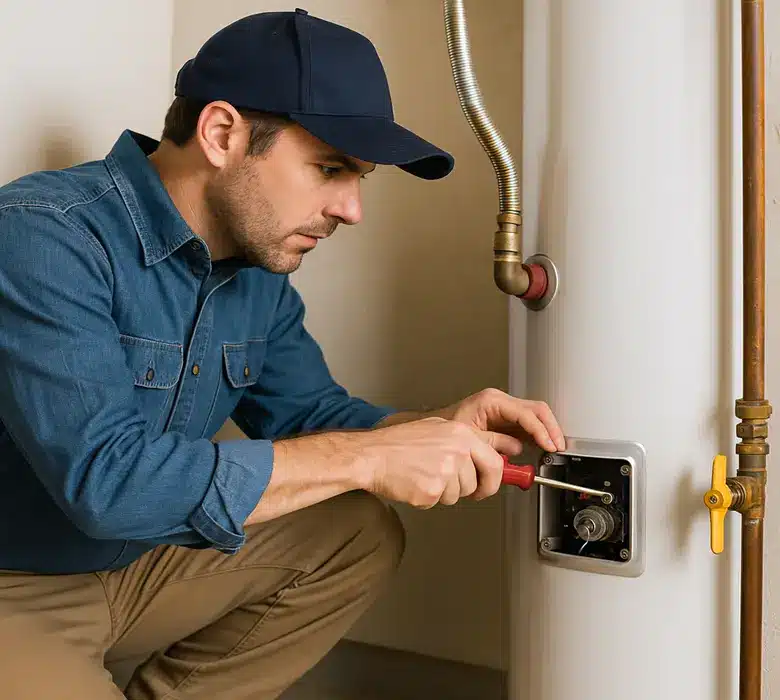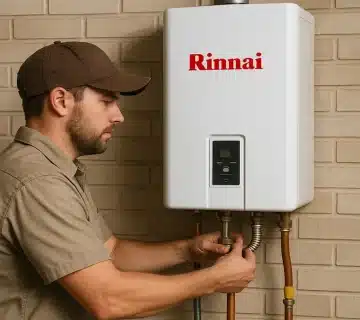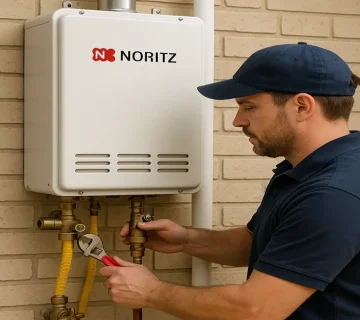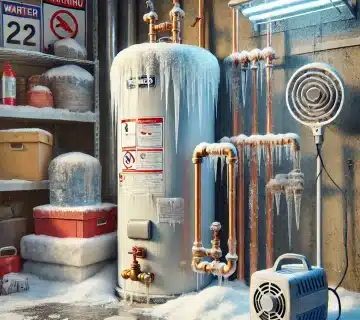Your water heater works hard every day to provide hot showers, clean dishes, and warm laundry. But without proper care, it can lose efficiency, waste energy, and break down earlier than expected. Learning how to maintain a water heater is a smart way to extend its lifespan, save money, and ensure safe operation.
This guide covers why maintenance matters, the most important tasks, mistakes to avoid, and when to call a professional.
Why Water Heater Maintenance Matters
Proper maintenance impacts your water heater in several ways:
- Efficiency: A clean, well-maintained tank heats faster and uses less energy.
- Longevity: Regular care helps your unit last years longer.
- Safety: Prevents overheating, leaks, and even dangerous pressure build-ups.
- Water quality: Reduces rust, sediment, and metallic taste in your hot water.
By practicing the right steps, you’ll know exactly how to maintain a water heater and get the most out of it.
9 Essential Tips for Maintaining Your Water Heater
- Flush the Tank Annually
Sediment builds up at the bottom of the tank and reduces efficiency. Draining and flushing once a year clears it out and keeps heating elements from overworking. - Check the Anode Rod Every 3–5 Years
This metal rod prevents corrosion inside the tank. If it’s heavily worn or coated, replace it to extend the life of your heater. - Inspect the Pressure Relief Valve
Lift the lever to ensure it releases water. This valve is a critical safety feature that prevents tank explosions. - Test the Thermostat
Keep your water heater at 120°F for the best balance of safety and efficiency. - Insulate the Tank and Pipes
Adding insulation blankets reduces heat loss, especially in colder climates. - Check for Leaks
Look for water pooling around the base. Small leaks can quickly turn into major damage. - Clean Around the Heater
Remove dust, lint, and debris that can affect performance or create fire risks. - Listen for Strange Noises
Popping or banging may signal sediment buildup. Address it before it damages the heater. - Schedule Professional Inspections
A plumber can spot issues you might miss, ensuring long-term performance.
Mistakes to Avoid
One of the most common mistakes is not knowing how to maintain a water heater properly, which leads to sediment buildup and reduced efficiency.
- Ignoring maintenance until the heater fails.
- Setting temperatures too high, which wastes energy and risks scalding.
- Skipping annual flushes, allowing sediment to harden and damage the tank.
- Trying complicated repairs without experience — always call a professional.
FAQs: How to Maintain a Water Heater
Q: How often should I flush my water heater?
At least once a year, more often if you have hard water.
Q: Can I maintain both tank and tankless units?
Yes. Tankless models need annual descaling to prevent mineral buildup.
Q: Does maintenance really save money?
Yes. A clean, efficient heater lowers energy bills and reduces costly repairs.
Q: Why should I learn how to maintain a water heater?
A: Because routine care prevents breakdowns, saves energy, and extends the unit’s life.
Final Thoughts
Learning how to maintain a water heater is a simple but powerful way to protect one of the most important systems in your home. By flushing the tank, checking the anode rod, and scheduling routine inspections, you’ll enjoy reliable hot water, lower bills, and fewer repair headaches.
With just a few hours of care each year, your water heater can run safely and efficiently for a decade or more.
Taking time to learn how to maintain a water heater also gives you peace of mind. Simple habits like checking valves, listening for unusual sounds, and scheduling an annual inspection ensure your heater runs smoothly and keeps your family safe while saving money on energy bills.





